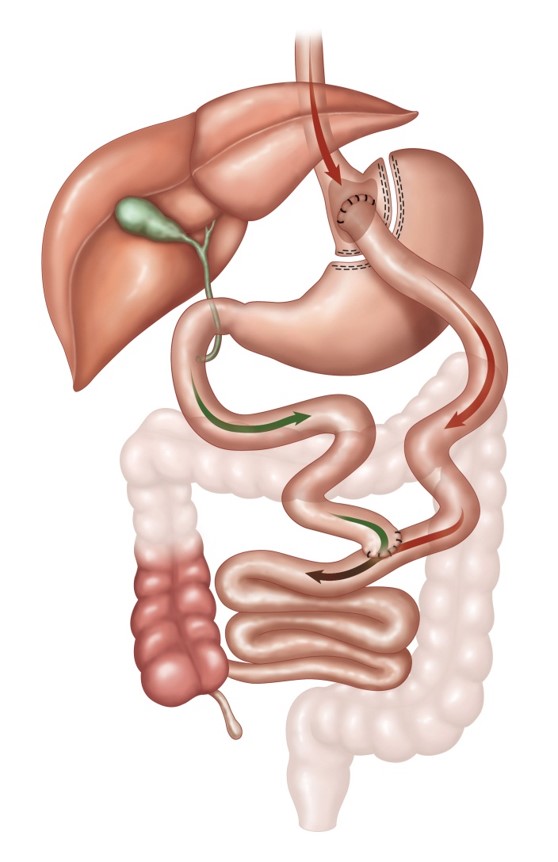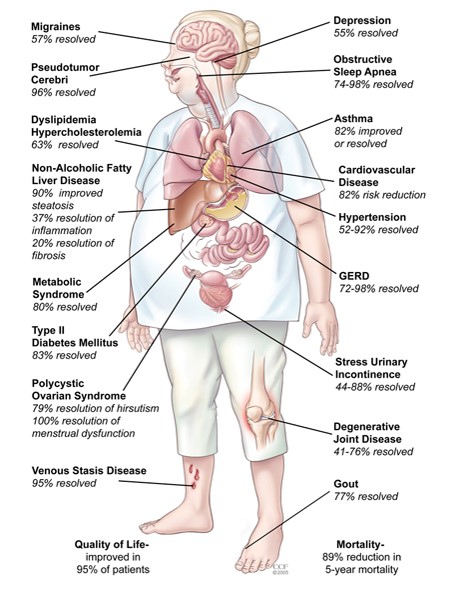Gastric Bypass Surgery

This is done by stapling off a portion of the stomach to form a small pouch and attaching the limb of the intestine to that pouch. This creates a pathway for food to bypass most of the stomach and a short segment of the small intestine.
Almost all of the surgeries done here are laparoscopic, also called minimally invasive surgery. This type of surgery requires a few small incisions with less pain than open surgery.
The video below provides a visual representation of this surgery:
Benefits of Surgery
Gastric Bypass Surgery works in many ways:
- It limits the amount of food you can consume at one time.
- It enables you to feel satisfied after smaller portions.
- It provides you with a “tool” to help achieve the permanent weight loss you desire.
- Patients who adopt permanent lifestyle changes, both through eating changes and exercise, are usually able to keep their weight off.
- Most importantly, gastric bypass surgery often helps eliminate many of these medical problems:
- Chronic Headaches
- Diabetes
- Heel Pain
- High Blood Pressure
- High Cholesterol
- Joint Pain
- Leg Swelling
- Leg Ulcers
- Menstrual Irregularities
- Obesity Hypoventilation Syndrome
- Pseudotumor Cerebri
- Reflux (Heartburn)
- Shortness of Breath
- Sleep Apnea
- Urine Control Problems

The Cleveland Clinic Center for Medical Art & Photography © 2007. All Rights Reserved

